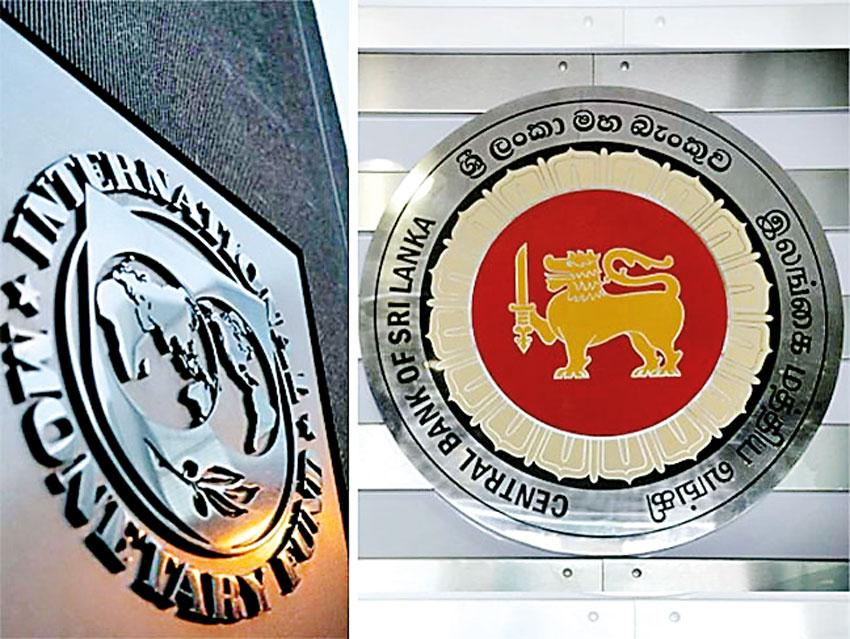13 Apr 2023 - {{hitsCtrl.values.hits}}

 On March 20, 2023, the International Monetary Fund (IMF) Board approved Sri Lanka’s 17th IMF programme, under the Extended Fund Facility (EFF) arrangement, aimed at addressing the significant economic challenges faced by the country. This approval comes at a critical time for Sri Lanka, as it continues to grapple with a severe contraction, high inflation and public debt levels, fiscal imbalances, and vulnerabilities in the financial sector.
On March 20, 2023, the International Monetary Fund (IMF) Board approved Sri Lanka’s 17th IMF programme, under the Extended Fund Facility (EFF) arrangement, aimed at addressing the significant economic challenges faced by the country. This approval comes at a critical time for Sri Lanka, as it continues to grapple with a severe contraction, high inflation and public debt levels, fiscal imbalances, and vulnerabilities in the financial sector.
Through the EFF, Sri Lanka will receive a total disbursement of US$ 3 billion, over a period of four years (48 months), on a semi-annual basis (specifically in the months of March and September). However, receiving each disbursement will be contingent on a thorough review of Sri Lanka’s progress towards fulfilling its commitments that will be conducted periodically.
Following are the seven key objectives the government of Sri Lanka has committed to restore macroeconomic stability in the country.
Objective 1: Revenue-based fiscal consolidation
Sri Lanka plans to implement taxation reforms to achieve fiscal consolidation, which includes strengthening Social Safety Nets (SSN) to protect the poor and vulnerable, improving core Public Financial Management (PFM) functions, and implementing cost-reflective energy and electricity pricing. These measures are aimed at improving the government’s revenue generation and expenditure management to achieve fiscal sustainability. Fiscal consolidation is crucial for Sri Lanka as it has been grappling with high public debt levels, which have been a significant challenge to the country’s economic stability.
Objective 2: Restore public debt sustainability
Sri Lanka aims to reduce its public debt levels below 95% of GDP by 2032, as outlined in the Indian letter of assurances. This objective also includes improving public debt management and debt transparency, including the establishment of a debt management office to enhance debt management practices. Managing public debt levels is crucial to ensure the long-term sustainability of Sri Lanka’s finances and reduce the burden on future generations.
Objective 3: Restoring price stability
Sri Lanka aims to restore price stability through measures such as a market-determined exchange rate and rebuilding international reserves. It also includes lifting foreign exchange control measures, which will help improve the country’s balance of payments position and boost investor confidence. Price stability is essential for creating a conducive environment for investment and economic growth.
Objective 4: Ensuring financial stability
This includes conducting asset quality reviews on selected banks to assess their financial health and stability. It also involves strengthening regulatory and governance frameworks for state-owned banks through the enforcement of the Banking Act and the Central Bank Act. These measures are aimed at improving the stability and resilience of Sri Lanka’s financial sector, which is crucial for overall economic stability.
Objective 5: Reducing corruption vulnerabilities
Sri Lanka aims to address governance concerns and reduce corruption through measures such as conducting a governance diagnostic to identify and address governance concerns, drafting anti-corruption legislation, and improving fiscal transparency. These measures are aimed at promoting good governance, reducing corruption, and enhancing transparency and accountability in Sri Lanka’s public financial management. Corruption has been a persistent challenge in Sri Lanka, and addressing it is crucial for improving the country’s investment climate and attracting much-needed foreign investment.
Objective 6: Raising potential growth in Sri Lanka
This includes implementing growth-enhancing reforms, improving trade and investment, increasing employment opportunities for women and youth, reducing the role of state-owned enterprises (SOEs) and the government in the economy, reforming the electricity sector, and adapting to climate change. These measures are aimed at promoting sustainable and inclusive economic growth in Sri Lanka.
Objective 7: Restoring its economic stability
Sri Lanka has taken significant steps towards restoring its economic stability, as evidenced by the completion of all nine prior actions enlisted in the IMF programme. These actions include crucial measures such as cabinet approval on fuel pricing formula, fiscal (revenue) measures for 2023, appropriation bill approval in Parliament for 2023, revised budget approval in Parliament for 2022, cabinet approval on Banking (Special Provisions) Act, new Central Bank Act, cost-recovery electricity price, policy rate increase by 100 basis points, and hiring an independent firm to conduct a banking sector diagnostic.
Looking forward: next steps
The first review of the IMF programme is expected to take place in September this year. A successful review would lead to a disbursement of around US$ 340 million to Sri Lanka, providing much-needed financial support to address its economic challenges. However, it is important to note that Sri Lanka is yet to fulfill some of its most important commitments, including enacting anti-corruption legislation, publication of the report of an IMF-led governance diagnostic technical assistance mission to assess Sri Lanka’s anti-corruption framework, and obtaining parliamentary approval on the Central Bank Act and the welfare benefits scheme.
Sri Lanka’s history with IMF programmes has been mixed, with only 9 out of the 16 programmes entered into in the past being successfully completed. Moreover, over the past 3 IMF programmes spanning 12 years, Sri Lanka has only met its targets on revenue, primary, and budget balance in 2 out of those 12 years. While Sri Lanka’s achievement of the IMF board-level agreement and completion of the prior actions are reasons to celebrate, it is crucial for the country to maintain consistent commitment to the successful completion of the programme.
One of the writers of this article Udara Pieris is a Visiting Associate Professor of Economics at Oberlin College, USA. He was previously a tenured Associate Professor of Finance at HSE University (at the department ICEF) in Russia and has taught at the University of Warwick, and the University of Oxford (both in the UK). His research has a strong policy focus and covers the nexus between the macroeconomy and the financial markets.
While the other writer Raj Prabu Rajakulendran is a Senior Research Analyst at Verite Research. He holds a BSc degree in Economics and Management from the University of London with first-class honors. Raj’s areas of expertise include public finance and macro-economics with a special interest in debt and the recent economic crisis in Sri Lanka.
04 Jan 2025 5 hours ago
04 Jan 2025 5 hours ago
04 Jan 2025 6 hours ago
04 Jan 2025 6 hours ago
04 Jan 2025 6 hours ago